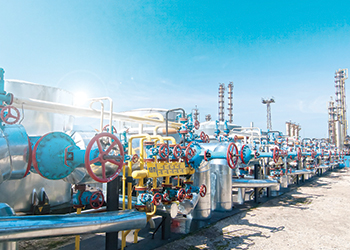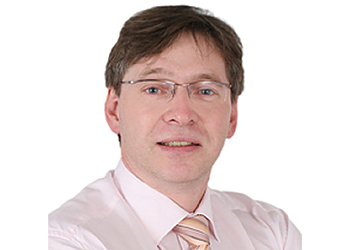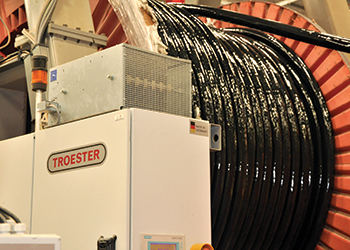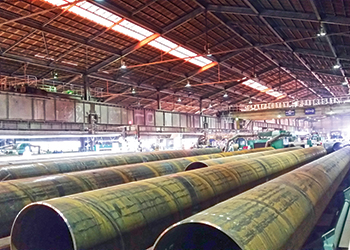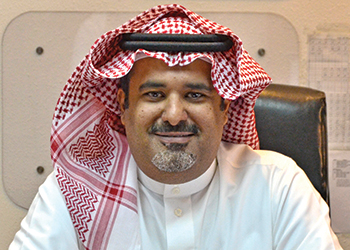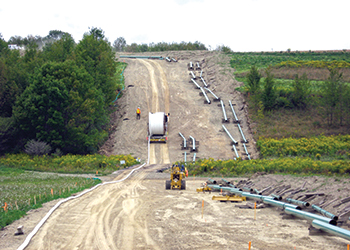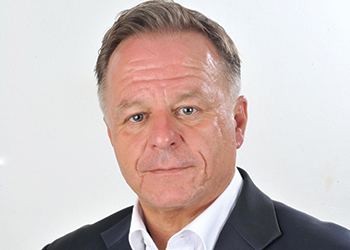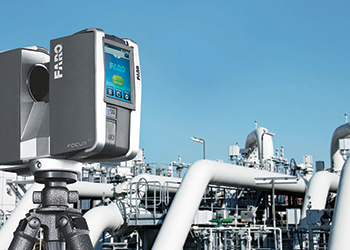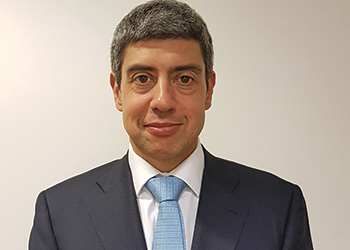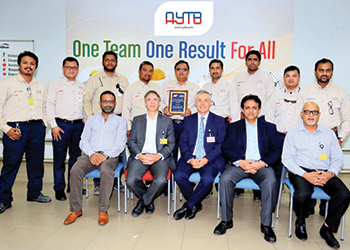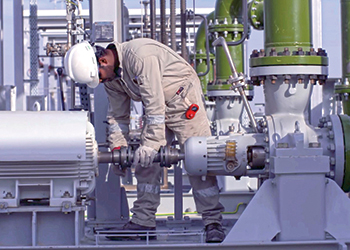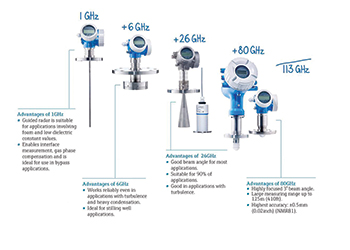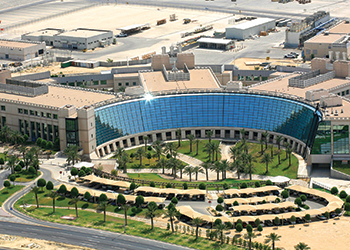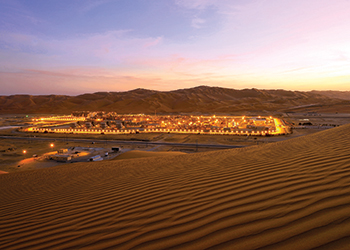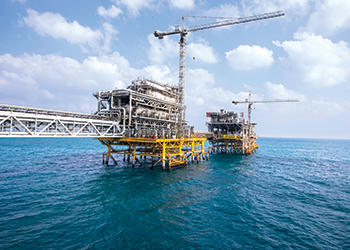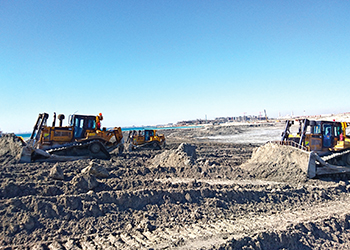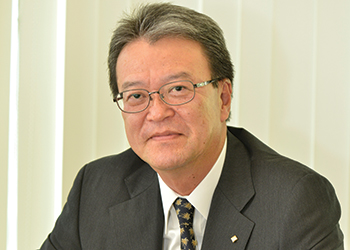
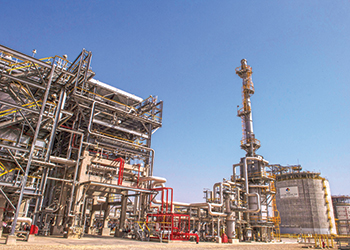 Sadara ... having capacity to produce 3 million tonnes of performance plastics per year
Sadara ... having capacity to produce 3 million tonnes of performance plastics per year
Saudi Aramco’s partnerships in refining and marketing ventures in China, Japan, South Korea and the US enable it to traverse the length of the value chain
Continuing its journey to become the world’s leading integrated energy and chemicals company, in 2016 Aramco created additional value from its resource base by progressing a suite of major downstream projects.
With a diversified, integrated, and robust business portfolio, Saudi Aramco’s supply, trading, and marketing model will mitigate oil price volatility, generate additional revenues, and expand opportunities for conversion industries, local manufacturers, and service providers — all of which drive job growth and value creation.
In refining, Aramco made steady progress on its wholly owned Jazan Refinery, which includes an integrated aromatics complex, in the kingdom’s southwest. In chemicals, Aramco started up the mixed feed steam cracker with the capacity to crack 85 million scfd of ethane at Sadara, its joint venture with The Dow Chemical Company in Jubail Industrial City. With its partner Sumitomo of Japan, Aramco neared completion of an expansion at PetroRabigh, its integrated refining and chemicals complex on the Red Sea coast. And Aramco launched Arlanxeo, a speciality chemicals joint venture headquartered in the Netherlands, says Aramco in its Annual Review 2016.
Unlocking the greater potential value inherent in hydrocarbon resources lies at the heart of its downstream strategy. Aramco plans to capture synergies by integrating at both the operational and geographical level — connecting oil and gas supply, refining, chemicals, and base oils in regions of high growth potential. Its integrated business model enables Aramco to attain higher value from every hydrocarbon molecule that it produces and grow its global market share.
IN-KINGDOM DOWNSTREAM
Saudi Arabia’s endowment of oil and gas, its expanding network of refining and chemicals facilities integrated with industrial parks, and geographic proximity to major markets in Europe and Asia all combine to create favourable conditions for investment, growth, and even greater demand.
In 2016, Aramco safely and reliably supplied the country’s transportation sector with the refined products and fuels needed to keep the kingdom moving, provided fuel and feedstock to the kingdom’s power sector, made significant progress on its integrated refining and chemicals projects, and advanced the development of a base oils business. Aramco also continued to explore enhanced integration opportunities within its refining network while focusing on its performance to boost operating efficiency.
Aramco is committed to raising its global refining capacity. Construction of its 400,000 bpd Jazan Refinery reached 55 per cent completion. The overall project includes a marine terminal and an integrated gasification combined cycle power plant with the capacity to generate 3.7 gigawatts of electricity. Pre-commissioning activities for the Jazan complex are scheduled to begin in mid-2018, following completion of the marine terminal.
SADARA
Worldwide, the chemicals industry is a $4 trillion business, but the Gulf Cooperation Council’s (GCC) share of the global market for speciality chemicals, for example, is less than 2 per cent. Aramco therefore sees significant opportunities to grow its downstream products portfolio, creating sustainable value for its partners, its customers, and the kingdom.
Aramco’s Sadara joint venture, with the capacity to produce 3 million tonnes of performance plastics and high-value chemicals per year, was conceived to meet growing demand in the region and in Asia.
In 2016, Sadara marked a historic landmark with the startup of its mixed feed steam cracker, making it the first chemicals facility in the GCC countries to crack naphtha. The cracker, which breaks ethane and naphtha to form new molecules, including ethylene and propylene, enables the production of a diversified range of plastics and chemical products designed to meet the rigorous standards of sectors such as advanced packaging, construction, electronics, furniture and the automobile industry. (By August 2017, Sadara made the announcement that all its 26 plants have been commissioned.)
The potential to grow its in-kingdom employment is especially strong in the chemicals sector. Currently, the regional chemicals industry accounts for less than 1 per cent of the global number of jobs in the sector and related industries. Its expansion into the industry will raise that percentage. For example, adjacent to Sadara is the PlasChem Value Park. Expected to create 1,500 direct jobs and generate opportunities for thousands more indirect jobs, the park has attracted some of the world’s largest chemical and oil services investors. Aramco’s support includes investing in an ethylene oxide and propylene oxide pipeline, and coordinating its efforts with the PlasChem Value Park team and the Royal Commission for Jubail and Yanbu’ to attract investors and future customers.
 |
Khurais refinery ... adding to the kingdom’s output |
The PetroRabigh PlusTech Park, integrated with PetroRabigh, is expected to generate more than 2,000 jobs and attract private sector investment of over $1 billion. Given the park’s potential to attract new customers, Aramco contributed 50 per cent of the park’s development costs and currently owns a 50 per cent stake in its infrastructure and assets. Its main role is to promote and market PlusTech Park to attract downstream conversion industries that will consume its fuel and feedstocks. So far, 30 local and international plastics converters have signed agreements to operate in the park, 14 of which have commenced production.
Aramco also neared completion of the PetroRabigh Phase II project to expand its cracking facility to crack an additional 30 mmscfd of ethane and add an aromatics complex to produce new differentiated products. The full operation of the cracking facility was achieved in 2016, and the remaining assets are scheduled to start up in late 2017.
By partnering with global energy companies in ventures such as Satorp in Jubail, S-Oil in the Republic of Korea, and Yasref in Yanbu’, Aramco maximises the value of the kingdom’s hydrocarbon resources while producing critical feedstock for industry and essential fuels that meet the needs of consumers around the world.
GLOBAL DOWNSTREAM
Saudi Aramco’s partnerships in refining and marketing ventures in China, Japan, South Korea, and the US enable it to traverse the length of the value chain from wellhead to consumer, adding value to its resources at every step. In 2016, Aramco continued to pursue and evaluate international opportunities to expand its refining and chemicals capability for greater downstream integration to propel additional value creation.
In South Korea, Aramco holds a majority equity interest in S-Oil, one of the country’s leading refiners. Two projects are under way to enhance its refinery’s competitiveness, create a more diversified portfolio, and improve profitability. The first project involves upgrading low-value residue to high-value olefin and gasoline products. The second project involves new facilities to produce polypropylene and propylene oxide, and recover ethylene.
In Indonesia, Aramco has been selected as the strategic partner for the Refinery Development Master Plan Project of Pertamina, the national oil company. In 2016, Aramco signed a nonbinding Joint Venture Development Agreement to enable further progress for the joint ownership, upgrade, and operation of Pertamina’s Cilacap Refinery in Central Java. Under the agreement, the refinery’s capacity will be expanded to 400,000 bpd and designed to process Arabian crude oil to produce refined products that meet Euro V specifications, basic petrochemicals, and Group II base oil for lubricants. Saudi Aramco will own a 45 per cent interest of the venture. Basic engineering design work was completed in early 2017.
 |
PetroRabigh ... expanding capacity |
In addition to expansion in Asia, Aramco also progressed integration in the US and Europe:
• In the US, a nonbinding Letter of Intent was signed by its Houston-based indirect subsidiary, Saudi Refining Inc, and an affiliate of Shell Oil to end the Motiva Enterprises refining and marketing joint venture formed by the parties in 1998, and to divide the assets of Motiva between them. Subject to the completion of definitive agreements and the receipt of regulatory approvals of the definitive agreements, Saudi Refining and its affiliate, Aramco Financial Services Company, will own 100 per cent of Motiva and the assets retained by Motiva, including full ownership of the Motiva Refinery in Port Arthur, Texas and certain distribution terminals. The definitive agreements also include an exclusive license to use the Shell brand to sell certain products across much of Texas and the Southeast;
• In the Netherlands, Aramco officially launched Arlanxeo, its joint venture with German speciality chemicals company Lanxess, a milestone on its journey to increase its participation in the chemicals sector. Arlanxeo is a world leader in the development, production, marketing, sale, and distribution of synthetic rubber and elastomers used in the global tyre industry, auto parts manufacturing, construction, and oil and gas industries. The joint venture helps unlock the full economic potential of the kingdom’s hydrocarbon resources, and potentially enables opportunities for further economic diversification and job creation.
GROWING SALES
Expanded sales and marketing activities are key components of Aramco’s strategy to strengthen integration across its downstream business and create additional value while diversifying risk. Guided by this approach, Aramco registered eight new customers in 2016 and explored sales opportunities in the Baltics, Africa, Australia, and New Zealand. Aramco also renewed its agreement for the Okinawa storage facility to support supply and distribution in Asia and are working to expand storage capacity by 2 million barrels, to 8.3 million barrels, by mid-2017.
In 2016, Aramco signed key business principles with the Jadwa Industrial Investment Group and Luberef, its affiliate that operates two base oil refineries in Jeddah and Yanbu’ on the kingdom’s Red Sea coast, for the right to lift and market the base oil produced at Luberef. Base oils are used to create lubricants for automotive, industrial, and marine applications.
New gas plants such as Wasit are key components of the expansion of the Master Gas System. Growing the capacity of the Master Gas System to deliver more gas safely and reliably enables new opportunities.
Aramco plans to integrate base oil producing affiliates and establish global base oil product slates under the Saudi Aramco brand for Groups I, II, and III, with the capacity to produce 4.7 million tonnes per year, representing 14 per cent of global base oil demand. In late 2016, its sales and marketing subsidiary, Aramco Trading Company (ATC), began volume exports of Group I base oil under the new brand name aramcoDURA.
In addition to commencing exports of aramcoDURA, ATC celebrated five years of successful operations and remained focused on creating more value from trading operations and maintaining reliability and profitability from its refined products portfolio. ATC pursued efficiency gains by optimising freight contracts, hiring a new lead logistics provider and increasing the number of local and international hubs to offer greater storage options and shipping flexibility.
By optimising its supply chain and balancing the utilisation of its assets, Aramco seeks to meet its in-kingdom customers’ needs safely, efficiently, and reliably. In pursuit of these goals, in 2016 Aramco continued work to upgrade its distribution system.
To enhance supply reliability, Aramco completed a project to increase the capacity of the Riyadh-Qassim pipeline from 125,000 to 160,000 bpd, boosting the reliability of refined product supply to this central region. Its project to re-commission the Yanbu’ South Terminal and integrate it with the Yanbu’ Crude Oil Terminal progressed in 2016.



































































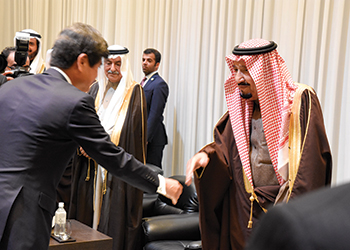
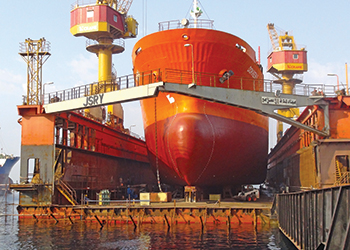
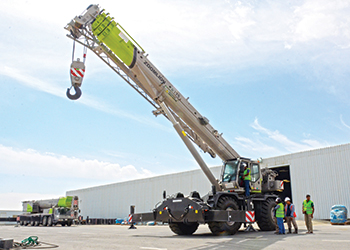
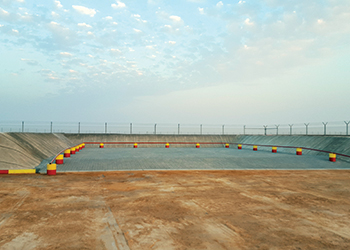
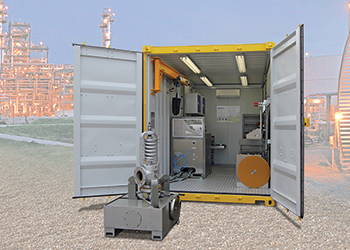
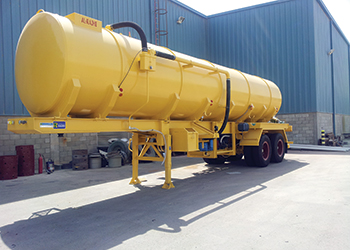
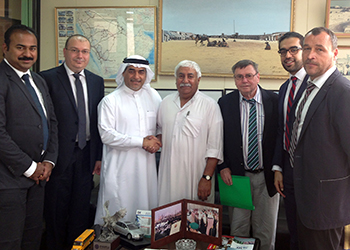
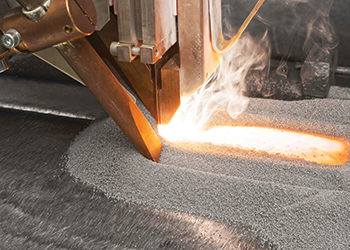
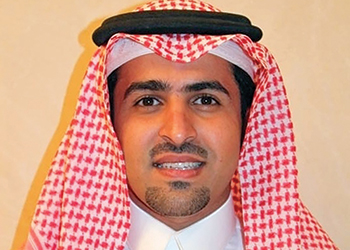
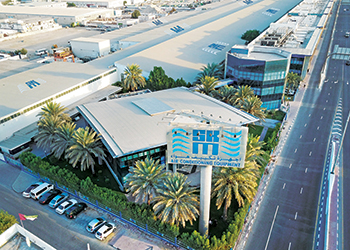
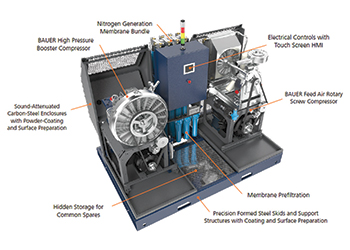

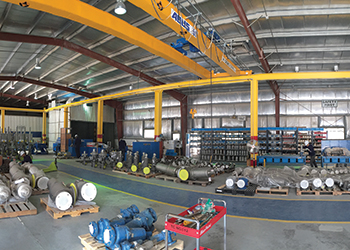
.jpg)
